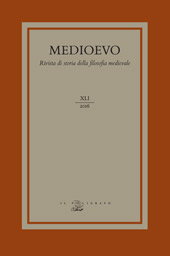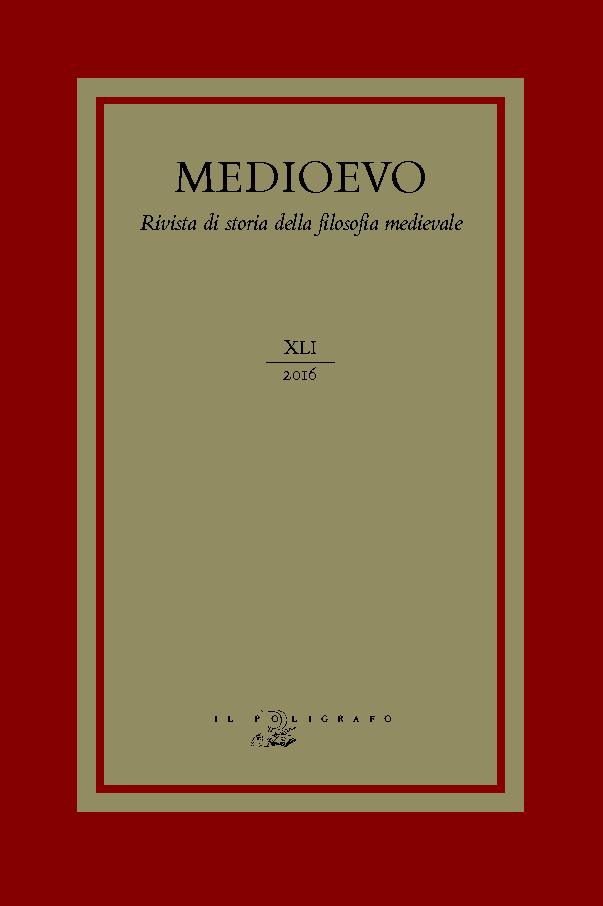Le opere dei sei giorni : artimetica ed esegesi secundum physicam in Teodorico di Chartres
67-102 p.
This paper focuses on the exegetical proposal of the Tractatus de sex dierum operibus by Thierry of Chartres and it is tasked with analyzing the twofold interpretative framework adopted by the Cancelor: first, the accordance between the narration of Genesis and the heuristic models of physical and cosmological causality; second, the mathematical theology, which revises the work of creation according to an arithmological approach. The study is divided into two parts which follow the structure of the Tractatus. In the first part, I analyse the physical plausibility of Christian cosmogony and, subsequently, the conception of matter with regard to both William of Conches' inordinatum and the hermetic locus mundi. In the second part, I examine how the numerical discourse interprets the creatural unfolding and dependence on God, as well as the creation per verbum and the individuality of each created being.
My purpose is threefold: first, to test the inner philosophical coherence of the Tractatus; second, to interpret specific theoretical points at the light of Thierry's commentaries on Boethius' De Trinitate, and finally, to relate the arithmetical issues of the Tractatus to the Commentum super Arithmeticam Boethii. [Publisher's text].
L'articolo si concentra sulla proposta esegetica del Tractatus de sex dierum operibus di Teodorico di Chartres e ne analizza i due criteri interpretativi: la lettura della narrazione genesiaca secondo modelli euristici di causalità fisico-cosmologica e la teologia matematica che rielabora aritmologicamente la tematica creazionistica. L'articolo si divide in due parti modellate sul procedere argomentativo dell'opera esamerale: nella prima ho esaminato la spiegazione "plausibilista" dell'esornazione del creato e la concezione della materia con brevi riferimenti alle concezioni di inordinatum di Guglielmo di Conches e di locus mundi ermetico; nella seconda ho indagato il discorso numerico che traduce analogicamente l'esplicazione e la dipendenza della pluralità creaturale da Dio, la creazione per verbum e l'individualità di ogni ente.
Il fine che mi propongo è testare la coerenza filosofica interna del Tractatus, rileggerne alcuni nuclei teorici alla luce dei successivi commenti dello Chartriano al De Trinitate di Boezio e porre in relazione i passaggi aritmetici del testo esegetico con il Commentum super Arithmeticam Boethii teodoriciano. [Testo dell'editore].
-
Artículos del mismo número (disponibles individualmente)
-
Información



